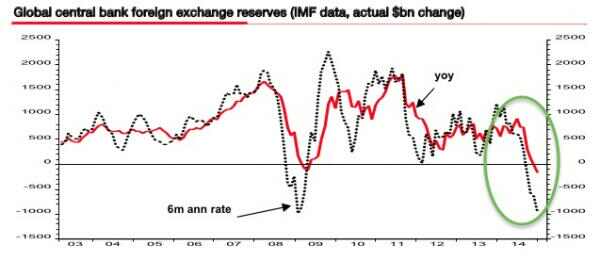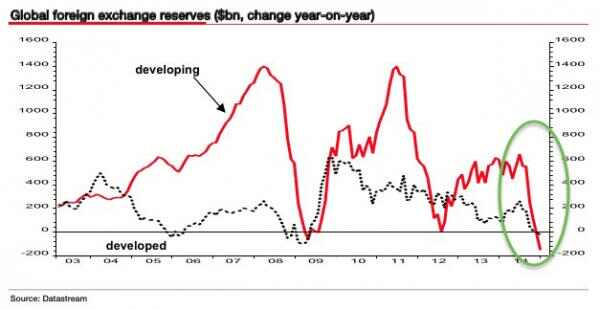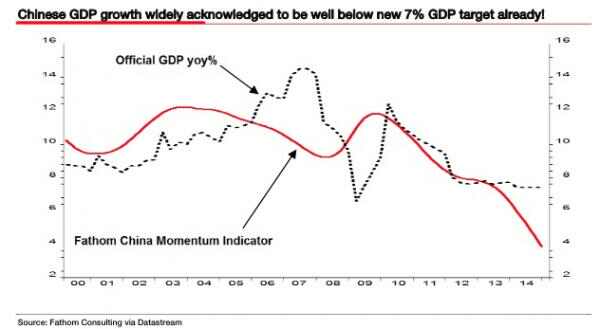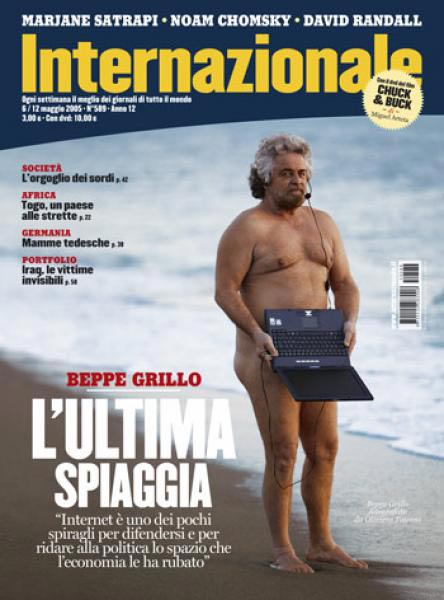
Matson Photo Service Palmyra (Tadmur, Syria). The Turkish castle. Kala’at Ibn Na’an 1935
Got a mail from a friend in Scotland late last night that got me thinking. “Unfortunately, using Ireland as a model of fracture, we may start blowing up each other.” I’ve been reading a lot lately, in between all the other things, about Scotland, as should be obvious from my essay (Jim Kunstler tells me I can use that word) yesterday, Please Scotland, Blow Up The EU, and sometime today a thought crept up on me that has me wondering how ugly this thing is going to get. I think it can get very bad.
What I get from it all is that if anything is going to win this for the independence side, it must be the arrogance the London government has exhibited. That alone could seal the deal. But now of course London has belatedly woken up. Even David Cameron is scheduled to – finally – visit Scotland in the course of the contest. And if push comes to shove, they’ll throw in a royal baby. Or a Queen. Mark my words.
Cameron’s visit is funny in that he never thought it necessary until now because he thought he would win no matter what until a few days ago, and also funny because he must easily be the least popular person in all of Scotland, so a visit is a substantial risk. He had his bellboy Alistair King do a TV debate recently, and King flunked that thing so badly he may have single-handedly propelled the Yes side into the lead.
The knifes are being sharpened and soon they will be drawn – there’s only 9 days left. Question is, who will end up hurt? Bank of England Governor Mark Carney picked today of all days, 9 days before the referendum, to at last get more specific about his rate hike plan: it’s going to be early 2015. Because the UK economy is doing so great…
Only, wages will have to rise, and that will have to happen through British workers ‘earning’ pay hikes by ‘boosting their productivity and skills’. These workers have about 6 months to do that. You’re pulling my leg here, right, Mark? In any case, it seems obvious that Canadian Carney will be used as a tool against the Scottish independence movement. That’s just more arrogance.
Carney also spoke out directly on Scotland, saying there can’t be a currency union between the Scots and the Brits. Oh yeah, that should scare ’em!
The pound sterling is falling, but that doesn’t mean much. What does is that the entire financial world, of which the City is a large part, was caught on the wrong foot as much as the UK government. And both will now, until September 18, pull all the stops to cover their – potential – losses. With all means at their disposition. Some of which will be brutal, or at least appear to be.
Billions of dollars have already been lost in just a few days, since everybody realized the UK may actually split up. Many more billions will be lost in the coming week, as measures of volatility go through the roof. Neither the Yes side nor the No side have gone into this thing terribly prepared; there are a zillion questions surrounding the independence issue that won’t be solved before the vote takes place. Passports, currencies, central banks, monetary unions, there’s too much even to mention.
Somewhere, emanating from the old crypts and burrows in which Britain was founded, I fear a hideous force may emerge to crush the Scottish people’s desire for self-determination, if only because that desire is a major threat to some very rich and powerful entities who found themselves as unprepared as Downing Street 10.
I don’t know if, as my friend fears (though he’s much closer to the action than I am, so who am I to speak), it will lead to people blowing up each other, but then also, who am I to rule that out? The UN charter on self-determination looks good on paper and in theory, but when reality comes knocking, there’s mostly not much left of the lofty ideals and intentions, or is that just me, Catalunya?
Still, there’s an added dimension in Scotland: the fact that the City of London is the number 1,2 or 3 (take your pick) most important finance center on the planet. If and when anybody rattles that kind of cage, other forces come into play. It’s no longer about politics, but about money (and no, I’m not too think to see how the two are linked).
So I hold my breath and my prayers for both my Scottish and my British friends – and I happen to have lots of them – and I hope this is not going to get completely out of hand. The reasons I think it may get out of hand regardless is that 1) there is not one side that was ever prepared for the situation in which they find themselves today and 2) there is an enormous supra-national interest that resides in the UK financial world which is in a semi panic mode about how much money can be lost not just because of a UK break-up, but because of the uncertainty surrounding that potential break-up.
And there’s something in all of that which is definitely scary. London, and the Queen, will do all they can not to lose part of their ’empire’. The City of London will do even more not to lose a substantial part of their wealth. And this time around I don’t think they properly hedged their bets: the surge of the Yes side is as close to a black swan as we, and the City of London, have seen.









• Bank of England Governor Mark Carney Signals Spring Rate Rise (WSJ)
The Bank of England will likely meet its inflation and jobs goals if it starts to raise its benchmark interest rate early next year, Gov. Mark Carney said Tuesday in his clearest statement yet on the probable timing of a first move toward unwinding crisis-era stimulus. In a speech to labor union members in Liverpool, Mr. Carney said the rate at which wages rise over coming months will be key to the exact timing of the first move, and repeated his assurance that a rise in the benchmark rate will be “gradual and limited.” Mr. Carney said the U.K.’s economic recovery has “exceeded all expectations” and “has momentum.” Against that background he said the time for interest rates to “normalize” is nearing, and that in recent months the decision on whether to raise or leave policy unchanged “has become more balanced.” Most investors expect the BOE to raise its benchmark interest rate from a 320-year low of 0.5% in the first quarter of 2015, and Mr. Carney appeared to validate that expectation.
“Our latest forecasts show that, if interest rates were to follow the path expected by markets—that is, beginning to increase by the Spring and thereafter rising very gradually—inflation would settle at around 2% by the end of the forecast and a further 1.2 million jobs would have been created,” he said. “In other words, we would achieve our mandate.” Should it raise its benchmark interest rate early next year, the BOE would likely become the first major central bank to start to remove the unprecedented levels of stimulus provided to the economy since the financial crisis struck in late 2008. The U.S. Federal Reserve is expected to start to raise its key rate later in the year, while the European Central Bank Thursday provided additional stimulus in the form of rate cuts and new bond buying programs. With the Japanese economy struggling to recover from an April hike in the sales tax, the Bank of Japan may yet provide more stimulus.
Read more …

And counting.
• Billions Of Pounds Wiped Off Value Of Scottish-Linked Firms (Guardian)
Billions of pounds were wiped off the value of companies with Scottish links and the pound was pummelled as markets took fright at the increasing prospect of Scotland voting next week to break away from the United Kingdom. Investors on Monday dumped companies with exposure to Scotland, including the Royal Bank of Scotland and Lloyds Banking Group, which owns Bank of Scotland. They also ditched sterling, which at one point fell to its lowest level against the dollar for 10 months. “Be afraid, be very afraid,” Deutsche Bank analysts warned its clients after the Sunday Times YouGov poll had showed a small lead for the yes campaign.
American Nobel prize-winning economist Paul Krugman echoed the analysts’ view, warning Scotland it was unsafe to vote yes while uncertainty about the country’s currency remained. “If Scottish voters really believe that it’s safe to become a country without a currency, they have been badly misled,” Krugman wrote in the New York Times. “The risks of going it alone are huge. You may think that Scotland can become another Canada, but it’s all too likely that it would end up becoming Spain without the sunshine.” Elsewhere, a leading City banking expert warned that companies and individuals were likely to withdraw their cash from banks if the vote was in favour of a split from the union, while another economist warned independence could “easily derail the UK recovery”.
Initially almost £4.8bn was wiped off the stock-market value of companies with exposure to Scotland. As well as RBS and Lloyds, companies to be hit included engineering group Weir, insurer Standard Life, fund manager Aberdeen Asset Management and energy company SSE. By the end of trading the losses had been pared back to £2.6bn after RBS kickstarted the sale of its US arm. The taxpayer remains heavily exposed to Lloyds and RBS, which are both registered in Scotland, following the 2008 bailouts. The mood among City professionals has changed markedly in recent days: the FTSE 100 hit a 14-year high last week and until recently there had been concerns about a strong pound hurting exports. The blue chip index slipped back to 6,834 on Monday while the currency is weakening.
Read more …

Word.
• Ex-Chief Economist Stark: ECB Is Turning Into European ‘Bad Bank’ (Reuters)
The European Central Bank is turning into a European “bad bank” by loading up on bundled-up loans, and its record-low interest rates will not do anything to promote lending in the euro zone, former ECB chief economist Juergen Stark said. Stark, a former ECB executive board member and an arch-hawk, quit the bank in 2011 to protest its policies. Now he says the September rates cut would be “ridiculous, if the matter was not so serious”. The ECB cut its main interest rate to 0.05 percent on Thursday and pledged to buy asset-backed securities (ABS) on top of its four-year loan offer, or TLTROs, in a fresh attempt to ward off deflation and stimulate the euro zone economy. “The ECB is taking enormous risks onto its balance sheet with the purchases of ABS – of whatever quality – and is turning itself into a European bad bank,” Stark wrote in a guest column for the German newspaper Handelsblatt, which is to be published on Tuesday.
He said the rate cut could be seen as a “symbolic” move, if it had not been driven for the first time by a pursuit of an exchange rate target. Its goal was a targeted weakening of the euro exchange rate, he said, which had been demanded repeatedly by French and Italian politicians. “Zero-interest-rates will, however, not produce a single euro in additional lending, and this inefficiency will in the long term among other things further undermine the ECB reputation,” Stark wrote in his piece. The ECB has said many times that it does not have an exchange rate policy target but aims only for price stability. His comments come after an ally of German Chancellor Angela Merkel in a rare public attack, criticised the ECB’s ABS programme, saying it would scare Germans.
Read more …

In lieu of QE.
• Germany, France Push $400 Billion EU Investment Program (Bloomberg)
Germany and France are poised to take the first step toward a European investment program, as the euro area’s two biggest economies seek to resolve differences and spur growth without resorting to stimulus spending, government officials said. The proposals, which enlist the European Investment Bank for loans to companies, aim to pave the way for a €300 billion ($388 billion) investment plan outlined in July, according to three euro-area government officials who asked not to be named because the document is in draft form. Germany and France plan to present the initiative at a meeting of European finance ministers in Milan, Italy on Sept. 12. Germany’s emerging endorsement marks an attempt to shift the debate away from austerity and acknowledge the European Central Bank’s efforts to prod governments into action to combat low inflation and a weak economic outlook.
It’s also intended to deter ECB President Mario Draghi from resorting to purchases of sovereign bonds and asset-backed securities to increase bank lending, a move viewed with anxiety in Germany. Draghi “threw the kitchen sink” at German Chancellor Angela Merkel, Jacob Funk Kirkegaard, a senior fellow at the Peterson Institute for International Economics in Washington, said in an interview after the ECB’s policy decisions on Sept. 4. “Draghi’s message was plain: my back’s to the wall — do something to push fiscal stimulus now or watch me buy bonds.” With Merkel opposed to fiscal stimulus, German backing requires avoiding pledges of cash and any suggestion that pressure on France and Italy to make their economies more competitive is easing, one official said.
Read more …

And that took 8 weeks?!
• MH17 Broke Up In Mid-air Due To External Damage – Dutch Prelim. Report (RT)
The MH17 crash was a result of structural damage caused by a large number of high-energy objects that struck the Boeing from the outside, the preliminary report into the Malaysia Airlines disaster in Ukraine said. “Flight MH17 with a Boeing 777-200 operated by Malaysia Airlines broke up in the air probably as the result of structural damage caused by a large number of high-energy objects that penetrated the aircraft from outside,” the Dutch Safety Board said in its preliminary report. Dutch investigators added that “there are no indications” that the tragedy was triggered “by a technical fault or by actions of the crew.” [..] The plane was “split into pieces during flight,” the investigators said, based on the analysis of the pattern of wreckage on the ground.
The Dutch investigators said that “available images show that the pieces of wreckage were pierced in numerous places.” The report emphasizes that investigators haven’t yet had the chance to recover the components for forensic investigation. However, the photos taken from the wreckage “indicated that the material around the holes was deformed in a manner consistent with being punctured by high-energy objects,” the report said. “The characteristics of the material deformation around the puncture holes appear to indicate that the objects originated from the outside the fuselage.” The fact that the plane was damaged from the outside “also explains the abrupt end to the data registration on the recorders, the simultaneous loss of contact with air traffic control and the aircraft’s disappearance from radar,” the report says.
Read more …

So why not blame Kiev for spreading lies?
• Hagel ‘Not Aware’ Of Secret Deal To Supply Kiev With Lethal Weapons (RT)
US Defense Secretary Chuck Hagel said he was not aware of a secret deal to supply Ukraine with lethal weapons. His words contradict earlier statements by an aide to President Petro Poroshenko that the US is backing Kiev’s military with arms. “I’m not aware of any kind of a secret deal that was made in Wales about supplying lethal weapons to the Ukrainians,” Hagel told journalists on a visit to Turkey’s capital, Ankara. Earlier, Poroshenko aide Yury Lutsenko wrote on his Facebook page that the US, along with France, Italy, Poland and Norway, will supply modern weapons to Ukraine. The agreements were reached at the Sept. 4-5 NATO summit in Wales, Lutsenko wrote, adding that the West will also send military advisers to Ukraine. However, Hagel later denied the report Sunday, saying that Washington has not made an offer of “lethal assistance” to Ukraine.
Read more …

Brussels is a pool of fools.
• Here’s Why Europe Launched The ‘Nuclear Option’ Against Russia (Zero Hedge)
Europe’s leaders, we assume under pressure from Washington, appear to be making a big weather-related bet with their taxpayers’ lives this winter. As they unleash funding sanctions on Russia’s big energy producers, Europe has pumped a record volume of natural gas into underground inventories in an effort to ‘outlast’ Russia and mitigate any Napoleonic “Winter War” scenario. The plan appears to be to starve Russian energy firms of cashflow – as flows to Europe are already plunging – and remove their funding ability, potentially forcing severe hardship on Russia’s key economic drivers. As Bloomberg reports,
Europe’s reliance on Russian natural gas shipments via Ukraine is declining after the region pumped a record volume of the fuel into underground inventories, minimizing the risk of shortages during the coming winter. [..] Natural gas flows from Russia to the EU haven’t been affected in the current crisis. Storage sites in Slovakia, which had to seek emergency imports after its supplies were cut in 2009, were 92 percent full on Sept. 4, according to Gas Infrastructure Europe.
So Europe is stocking-up – which makes perfect sense – just in case Russia pulls the plug… but has now taken the situation to “11” on the Spinal Tap amplifier of escalating tensions by planning sanctions on Russia’s energy providers.
The plan appears clear:
• stock-up now (to survive the winter)…
• starve Russian firms of cashflow (thanks to stockpiles)…
• cut off their funding source (sanctions)…
• force Putin’s economy into a tailspin…
• Putin folds and it all ends happily ever after
There appear to be 3 problems with this plan…
1) What if the weather is considerably colder than normal this winter? (i.e. they need more supply)
2) Russia has already committed to supporting the sanctioned firms (and we would hardly be shocked if China chipped in)
3) What happens in Spring? German industrials need energy?
Read more …

• Finland Wants EU to Go Slow on Russia Sanctions (WSJ)
Finland thinks the European Union should wait in implementing its new economic sanctions against Russia, Finland’s prime minister said Monday. The EU launched on Monday the process to adopt formally a set of new measures that will slightly stiffen the EU’s response to Russia for its role in the Ukraine crisis. The new sanctions were adopted by the EU members including Finland on Monday, but the actual timing for their implementation was left to be decided later, Finland’s Prime Minister Alexander Stubb told Finnish media at a press briefing in Helsinki shortly after 1900 local time (1600 GMT).
“Finland in general isn’t of the opinion that now is the right time [for the sanctions],” Mr. Stubb said, adding that EU diplomats were negotiating in Brussels on Monday night over when the sanctions would actually be put into force. To come into force the sanctions have to be entered in the EU’s official journal, “but there are still discussions at which stage [the sanctions] will be published in the official journal,” Mr. Stubb said. Mr. Stubb said the schedule for implementing the new sanctions has been “fast and challenging” because Russia and Ukraine have made progress in their negotiations aimed at putting a stop on fighting in eastern Ukraine. Finland shares a 1,300-kilometer land border with Russia and has profited from tourism and trade with its huge eastern neighbor. In the past during the Ukraine crisis Finland has been among the EU members that have had reservations about ramping up economic pressure on Russia.
Read more …

Stand down Shinzo, stand down please …
• The Wrath of Abenomics Crushes Japanese Consumers (WolfStreet)
Abenomics soothsayers and apologists are worried: the August debacle is hard to explain away, even for them. It just sits there, a nagging, dark reality. In April, after the broad-based consumption-tax hike from 5% to 8% had taken effect, retail sales collapsed 20% from March. Total vehicle sales collapsed 56% to the worst level since December 2012, and December is usually the worst month of the year in Japan. April was terrible. It was much worse than feared by the Abenomics soothsayers and apologists. But the shock didn’t last long, and soon the soothsayers and apologists were at it again. In May, car sales were worse than a year earlier, but not much worse (-1.2%); and in June, car sales were actually a smidgen better (+0.4%) than a year earlier, and hopes were being propagated that this would all somehow work out.
But in July sales dropped 2.5% year over year, and other data points were going to heck as well. Then August happened. In August, vehicle sales as measured by registrations swooned, according to the Japan Automobile Manufacturers Association. All categories were down: sales of new cars, including minis (cars with tiny 500cc engines) plunged 9.4% year over year to 281,326 units; sales of new trucks of all sizes, including minis dropped 7.2% to 51,165 units. And total vehicles sales, retail and commercial, cars, trucks, and buses plunged 9% to 333,471 units. It was worse even than that terrible April, though in recent years, August had been better than April. It was worse even than December 2012. It was the lowest level since August 2011, the time when the consequences of the Great East Japan Earthquake and tsunami that had killed over 19,000 people were still paralyzing Japanese commerce, and when countless aftershocks were still rattling buildings and nerves on a daily basis.
Read more …

Line of the day: ” … the Fed’s policies have rewarded financial engineering at the expense of job creation … ”
• There Are Still 1.4 Million Fewer Full-Time US Jobs Than In 2008 (Lee Adler)
Let’s cut to the chase: There were 1,446,000 fewer people working full time in August 2014 than in August 2008, according to the Bureau of Labor Statistics household survey (CPS). That’s after an increase of 210,000 full-time jobs in August. That’s the actual count, not the seasonally adjusted abstraction. So we have to compare that with past Augusts to get an idea if its any good or not. August is a swing month, sometimes up, sometimes down. The average change over the prior 10 years, which included a couple of ugly years in the recession, was -63,000. So this number wasn’t bad. It was slightly better than August of last year and 2012, but come on…. It’s still 1.4 million below 2008? In 2008, the economy was in full collapse mode. The Fed has expanded its balance sheet by $3.7 trillion since August 2008 and there are fewer full-time jobs now than then? Remind me again what that $3.7 trillion has bought! Since August 2009, near the bottom of the recession, the US economy has added 6.25 million full-time jobs, a 5.5% increase.
That amounts to $588,000 in Fed QE per added full time job. But that’s ok. It’s been great for bankers, securities brokers, and hedge funds. While the number of full time jobs increased 5.5%, stock prices soared 175%. It’s all good! Or not. I have argued for a long time that the Fed’s policies have rewarded financial engineering at the expense of job creation. The Fed has made it profitable for corporations to borrow free money to buy back the stock options that they issue to their executives rather than investing in expanding their businesses and creating jobs. The Fed’s policies have enabled corporate executives and their financial enablers to conduct a massive skimming of the US economy and wealth transfer at the expense of everybody else. By promoting this behavior, not only has Fed policy been ineffective in stimulating real growth, it has been a moral outrage, decimating the middle class and robbing the elderly of their life savings as they’re forced to consume principal.
Read more …

Stand down François, stand down please.
• Hollande Hits Rock Bottom In Poll : 85% of French Oppose 2nd Term (RT)
A poll in France has revealed 85% of the population does not want President Francois Hollande to seek a second term in 2017. His approval ratings have hit an all-time low, with just 13% of those asked saying he is doing a good job. The survey was conducted by IFOP for the French weekly La Journal Du Dimanche and it made uncomfortable reading for Hollande. Fifty% of those polled did not think that the French president was delivering on his promises. Unemployment is approaching a record high and is currently over 10%. However, the under fire president has no plans to quit, saying at the recent NATO summit in Cardiff that he will not step down and will stay in office until his term runs out in 2017. His approval rating of just 13% makes him the most unpopular French president since the Second World War, in another poll conducted by TNS-Sofres. Lambasted for his failure to get the economy up and running, his misery was compounded when a former partner published a tell-all book.
Valerie Trierweiler described the 60 year-old as being dismissive of the poor, which contradicts his status as a socialist president. “With the release of every new poll, I watched him disintegrate,” Trierweiler wrote. “He needs to find someone to blame for the drop. It could never be him, so it had to be others and me.” Hollande has lost many of his core supporters from the left of the political spectrum, and has also suffered from discontent within his own cabinet. In late August, the French government was dissolved despite having being formed just 4 months earlier. They quit after ministers slammed President Francois Hollande’s plans for taxation and cuts, while also being critical of Germany’s austerity program. Led by former economics minister, Arnaud Montebourg, they chastised Hollande for being fixed on high taxes and spending cuts, who they say should have be looking to cut taxes so as to increase spending power and help revive the economy.
Read more …

The miracle is gone.
• Brazil’s ‘New Middle Class’ Turns On President Rousseff (Reuters)
The streets of Jardim São Luis, a poor and violent neighborhood near the edge of São Paulo, have not been this quiet in years. And that is exactly why Valeria Rocha is so worried. Arms folded, she scans the racks of baby clothes in her small store before flicking a glance towards the empty sidewalk. “Just a year ago this area used to be packed with shoppers but nowadays it’s all empty, my store included,” she said. After a decade of economic growth and welfare policies that lifted more than 30 million Brazilians out of poverty, Jardim São Luis and other tough neighborhoods across Brazil had high hopes for the future. But a faltering economy and mounting frustration over poor public services are dimming the outlook for Brazil’s “new middle class.”
As that happens, leftist President Dilma Rousseff is watching a once-loyal base – and her chances of re-election next month – slip away. Her main rival, environmentalist Marina Silva, has surged in the polls and is favored to win a likely second-round runoff against Rousseff. Last month, 13 of 14 people interviewed in Jardim São Luis said they were sure they would not vote for Rousseff, but could not point to a clear alternative. Just a week later, after the first televised debate between the candidates, 8 of 10 people interviewed said they had already decided to vote for Silva or would strongly consider it. The other two were still unsure. Silva, who grew up poor on a rubber plantation, has emerged as the anti-establishment candidate in this campaign. Within three weeks of entering the race late following the death of her party’s original candidate, she is in striking distance of becoming the first Afro-Brazilian woman to lead Brazil.
Read more …

Sure.
• FX Traders Said to Be Surprised by Scope of BOE Probe (Bloomberg)
Foreign-exchange traders interviewed as part of the Bank of England’s probe into whether its staff knew of currency-rate rigging have expressed surprise at the narrow scope of the questioning focused on one meeting, according to people with knowledge of the inquiry. The U.K. central bank called for an investigation after a senior trader turned over notes of an April 2012 meeting in which BOE officials were said to have told dealers it wasn’t improper to share impending customer orders with counterparts at other firms, a practice at the heart of a global probe into alleged manipulation. The BOE said at the time its review would be broader than that one meeting and examine whether staff knew of wrongdoing between July 2005 and December 2013.
Anthony Grabiner, the lawyer leading the probe, has questioned at least two traders in recent weeks, according to the people, who asked not to be identified because the matter is private. His questions were largely confined to what they recalled of the April 2012 meeting, they said. The people said the traders agreed to appear voluntarily, thinking they could discuss how they and other dealers operated without risking self-incrimination. Both said they were taken aback at how narrow Grabiner’s questions were and had prepared for a broader discussion of the rigging allegations. Grabiner, 69, didn’t give any indication whether the traders would be called back or who else would be interviewed, they said.
Read more …

Word.
• ‘Default The Only Solution For The Greek Debt Crisis’ (RT)
Default is highly possible in Greece because it is impossible for the country to repay all its debts, Aris Chatzistefanou, “Debtocracy” filmmaker, told RT. The Greek debt crisis erupted in 2009 and the economy is still struggling to generate growth and reduce high levels of unemployment. Long-term unemployment in Greece will reach almost 27% in 2015, according to an OECD report published on Wednesday. Greece has also seen one of the biggest drops in real wages since the beginning of the crisis, the OECD data shows.
RT: Greece’s debt ratio is much higher that before the crisis began. What is the situation in the country at the moment and how do citizens deal with the crisis?
Aris Chatzistefanou: Greece has become the best example of a country that was invaded by financial institutions of the Central European countries mainly Germany and France. And what they managed to do by imposing strict austerity measures for almost five years now was to increase the debt, not only as a%age of GDP but also as an absolute value. So in 2009 we started with a debt of 115% of GDP and right now just a few days ago we learned that our debt had skyrocketed to 175% of GDP. So it was a nightmare for the Greek people who were bailing out banks from France and Germany while at the same time they were the victims of the huge social genocide. Just to let you know, that in that so-called salvation period, we have lost almost 25% of GDP. And if you ask any historian he will tell you that there is no precedent in time of peace that a country can lose 25%. We are now the champions of unemployment with 30% and almost 60% for the younger people. The average family has lost almost 35% of its purchasing power. It is a real nightmare for the people in Greece.
RT: Is there any possibility of default in Greece in the current situation?
AC: It is highly possible because it is impossible for Greece to repay these debts. As long as they talk about haircuts and renegotiating the debt the problem remains, and that might be a cause for a domino effect in the eurozone. In my opinion default at the moment is the only solution for the debt crisis in Greece. We have seen positive examples in other parts of Europe like Iceland, even Russia, or in Latin America with Ecuador and Argentina where even when they had some problems it was a success story in comparison with what happened in Greece.
Read more …

• G20 Handed Gloomy Jobs Market Report (Guardian)
There is another gloomy assessment of the world’s jobs market On Tuesday. The International Labour Organisation, the World Bank, and the Organisation for Economic Co-operation and Development (OECD) have produced a labour market update for the G20 employment and labour ministers’ meeting in Melbourne. It highlights “large employment gaps remain in most G20 countries”, the grouping of the world’s biggest developed and emerging market economies. The authors also say that “the quality of employment remains a concern” and that “the deep global financial and economic crisis and slow recovery in many G20 countries has resulted not only in higher unemployment but also in slow and fragile wage gains for G20 workers.” The paper concludes: “Seven years after the onset of the global financial and economic crisis, the economic recovery may be strengthening but remains weak and fragile.
The employment challenges across most G20 countries are still very sizeable both in terms of a persistently large jobs gap and low quality of many available jobs. “The current growth trajectory, if unchanged, will not create enough quality jobs – giving rise to the risk that the jobs gap will remain substantial, underemployment and informal employment will rise, and sluggish growth in wages and incomes will continue to place downward pressure on consumption, living standards and global aggregate demand. Underlining these challenges is the fact that income inequality continues to widen across the G20 countries. “The G20 commitment to boost GDP by more than 2% by 2018 over and above the baseline projections is certainly a welcome step, although it will be important to ensure that this additional growth is job-rich and inclusive.”
Read more …

• Down the Memory Hole (Jim Kunstler)
The memory hole is working overtime in the USA zeitgeist these days. Shit happens and a week or so later, it unhappens — at least it seems that way as manifested by the front page of The New York Times or the flapping of Anderson Cooper’s gums on CNN. Anyone remember that Malaysian airlines plane that went down in July in Ukraine killing 283 persons? US government officials were jumping up and down trying strenuously to blame Russian Donbass separatists. The trouble was, they had no evidence whatsoever and their exertions were looking ridiculous (making the USA look ridiculous, of course). Last thing we heard, there were questions about two Ukrainian air force jets chasing it, and photos of entry and exit cannon holes in the pilot’s cabin. Recorded communications between the crew and traffic controllers were shoved into storage bin in the Netherlands, never to be made public.
The whole story vanished from the news media like the legendary D.B. Cooper — anyone remember him? — and hasn’t resurfaced since. Anyone remember the outbreak of World War Three in Ukraine two weeks ago? The USA was trying — again, strenuously — to promote the idea of a Russian invasion — minus any evidence of the actual Russian troops, you understand. That didn’t go over so well. All this was occurring, remember, because the USA was determined to make Ukraine a NATO member, contrary to explicit agreements reached with Russia following the collapse of the Soviet Union to not expand NATO eastward. Anyway, there was no Russian invasion and the US State Department and the White House were left holding a pig in a poke that nobody wanted to buy. End of story, as Tony Soprano liked to say.
Read more …

• Australia Gives Up on Australia as Investment Dwindles (Bloomberg)
Australia’s biggest companies are giving up on growth. Investment by businesses in the benchmark stock index will probably slip below rising dividend payouts within two years, according to data compiled by Bloomberg. Wesfarmers Ltd., the country’s biggest private-sector employer with operations spanning retail, mining and manufacturing, returned a record A$2.75 billion ($2.58 billion) to shareholders last year. Reserve Bank of Australia Governor Glenn Stevens, who slashed borrowing costs to a record low, is relying on companies to recover their “animal spirits” and take risks to reignite the economy. Yet firms grappling with an overvalued currency and high costs that leave them unable to compete in export markets are opting to play it safe.
“Only a large real depreciation of the Australian dollar will change this reality,” said Ross Garnaut, a professor of economics at Melbourne University and former economic adviser to Prime Minister Bob Hawke. “Capital spending in the traded goods and services industries is catastrophically weak because few investments look profitable in the current cost and exchange rate environment.” The pattern is repeated across industries, slowing growth in an economy where the unemployment rate exceeded the U.S. level in July for the first time since 2007, and company profits dropped in the second quarter by the most in five years. Australia, which has expanded for 23 years, is losing its developed-world-beating status as the mining investment boom that powered it through the global financial crisis wanes.
Read more …

Ongoing story.
• Drillers Piling Up More Debt Than Oil Hunting Fortunes in Shale (Bloomberg)
A decade into a shale boom that has made fracking a household word and Wilson a rich man, drillers are propping up the dream of U.S. energy independence with a mountain of debt. As oil production hits a 28-year high, investors and politicians are buying into the vision of a domestic energy renaissance. Companies are paying a steep price for the gains. Like Halcon, most are spending money faster than they make it, an average of $1.17 for every dollar earned in the 12 months ended on June 30. Only seven of the U.S.-listed firms in Bloomberg Intelligence’s E&P index made more money in that time than it cost them to keep drilling. (Results for two companies included only the first six months of 2014.) These companies are plugging cash shortfalls with junk-rated debt. They owed $190.2 billion at the end of June, up from $140.2 billion at the end of 2011. (Six of the 60 companies that didn’t have records available for the full period weren’t included.)
Standard & Poor’s rates the debt of 41 of the companies, including Halcon’s, below investment grade, meaning some pension funds and insurance companies aren’t allowed to invest in them. S&P grades Halcon’s bonds CCC+, which the rating company describes as vulnerable to nonpayment. Money manager Tim Gramatovich sees disaster looming in the industry. “I have lent money to nobody in this space, and I don’t plan to. This thing is absolutely going to blow sky-high,” says Gramatovich, chief investment officer of Peritus Asset Management LLC in Santa Barbara, California. The firm manages investments of about $1 billion, including the debt and equity of oil and gas companies that aren’t drilling shale. Halcon’s recent lousy run shows how quickly a bright future can dim. Like many of its peers, Halcon uses two sets of numbers to describe its outlook. To the U.S. Securities and Exchange Commission, the company reports what’s known as proved reserves.
The SEC requires an annual tally and limits these calculations to what the firm is reasonably certain it can extract from existing wells and other properties scheduled to be drilled within five years, based on factors such as geology, engineering and historical production. To investors and lenders, Halcon also highlights a much higher figure that it calls resource potential. These estimates, while loosely defined by industry guidelines, don’t follow the SEC rule or timeline. In fact, as Halcon notes, the SEC forbids companies from making resource-potential claims in official reserve reports. The agency doesn’t regulate what companies say at investor conferences, in press releases or on their websites. No one does. Discrepancies between proved reserves and resource potential are common in the industry, and investors can get duped, says Ed Hirs, a managing director at Hillhouse Resources. “There’s a lot of ways to make money in the oil and gas business, and not all of them involve drilling for oil,” he says. “You just drill investors’ pocketbooks. When investors are willing to throw money at you, you can just make money on that. It’s a time-honored tradition.”
Read more …

Exponentially is not a good word when it comes to epidemics.
• Ebola ‘Spreads Exponentially’ In Liberia, 1000s More Cases Expected (Reuters)
Liberia, the country worst hit by West Africa’s Ebola epidemic, should see thousands of new cases in coming weeks as the virus spreads exponentially, the World Health Organization (WHO) said on Monday. The epidemic, the worst since the disease was discovered in 1976, has killed some 2,100 people in Guinea, Sierra Leone, Liberia and Nigeria and has also spread to Senegal. The WHO believes it will take six to nine months to contain and may infect up to 20,000 people. In Liberia, the disease has already killed 1,089 people – more than half of all deaths reported since March in this regional epidemic. “Transmission of the Ebola virus in Liberia is already intense and the number of new cases is increasing exponentially,” the U.N. agency said in a statement. “The number of new cases is moving far faster than the capacity to manage them in Ebola-specific treatment centers.”
Fourteen of Liberia’s 15 counties have reported confirmed cases. As soon as a new Ebola treatment center is opened, it immediately overflows with patients. “In Monrovia, taxis filled with entire families, of whom some members are thought to be infected with the Ebola virus, crisscross the city, searching for a treatment bed. There are none,” it said. In Montserrado County, which includes the capital Monrovia and is home to more than one million people, a WHO investigative team estimated that 1,000 beds are urgently needed for Ebola patients, the statement said. Motorbike-taxis and regular taxis have become “a hot source” of Ebola transmission. Liberia’s government announced on Monday it was extending a nationwide nighttime curfew imposed last month to curb the spread of the disease. Sierra Leone last week ordered a four-day countrywide “lockdown” starting Sept. 18 as part of tougher efforts to halt the spread of Ebola.
Read more …

“20% of the world’s unfrozen surface freshwater”
• Lake Baikal, World’s Deepest Body Of Freshwater, Turning Into Swamp (RT)
The world’s oldest and deepest body of freshwater, Lake Baikal, is turning into a swamp, Russian ecologists warn. They say that tons of liquid waste from tourist camps and water transport vehicles is being dumped into the UNESCO-protected lake. One of the natural wonders and the pearl of Russia’s Siberia, Lake Baikal has recently been a source of alarming news, due to an increased number of alien water plants which have formed in the lake waterlogging it, ecologists said at a roundtable discussion recently held in the city of Irkutsk. A recent scientific expedition discovered that 160 tons of liquid waste are produced every season in Baikal’s Chivyrkui Bay, said the head of Baikal Environmental Wave, one of Russia’s first environmental NGOs, according to SIA media outlet. Locals have complained to ecologists that the waste easily drains into the lake, SIA reported. The growing number of tourist camps in the area are unwillingly contributing to the pollution.
The report elaborates that the camps pass on waste to special organizations, but disposal vehicles often don’t reach the facilities and instead end up dumping the waste into Baikal or rivers that flow into the lake. The waste dumped into the lake sparked the growth of water plants such as Spirogyra and Elodea Canadensis, which have never grown there before. Researchers found a significant accumulation of water plants and dead lake mollusks on the northern coast of Lake Baikal, according to report. They monitored the coastline from the mouth of the River Tia to Senogda Bay, finding rotting water plants down the coast. An increased level of pollution was also discovered in Listvenichesky Bay.
(Baikal is a rift lake in the south of Siberia which contains roughly 20% of the world’s unfrozen surface freshwater – the greatest in the world by volume. It is 1,642 meters deep and among the clearest of all lakes. At 25 million years old, it is also thought to be the world’s oldest lake. In addition, a large contributing factor to the contamination of the lake is water transport vehicles. Ships, boats, yachts, and other vessels produce 25,000 tons of liquid waste annually, but only 1,600 of them end up at the proper disposal facilities, according to the head of Baikal Environmental Wave.)
Read more …

‘Unparalleled acceleration’ …
• Greenhouse Gas Levels Rising At Fastest Rate Since 1984 (BBC)
A surge in atmospheric CO2 saw levels of greenhouse gases reach record levels in 2013, according to new figures. Concentrations of carbon dioxide in the atmosphere between 2012 and 2013 grew at their fastest rate since 1984. The World Meteorological Organisation (WMO) says that it highlights the need for a global climate treaty. But the UK’s energy secretary Ed Davey said that any such agreement might not contain legally binding emissions cuts, as has been previously envisaged. The WMO’s annual Greenhouse Gas Bulletin doesn’t measure emissions from power station smokestacks but instead records how much of the warming gases remain in the atmosphere after the complex interactions that take place between the air, the land and the oceans. It could be that the biosphere is at its limit but we cannot tell that at the moment” About half of all emissions are taken up by the seas, trees and living things.
According to the bulletin, the globally averaged amount of carbon dioxide in the atmosphere reached 396 parts per million (ppm) in 2013, an increase of almost 3ppm over the previous year. “The Greenhouse Gas Bulletin shows that, far from falling, the concentration of carbon dioxide in the atmosphere actually increased last year at the fastest rate for nearly 30 years,” said Michel Jarraud, secretary general of the WMO. Atmospheric CO2 is now at 142% of the levels in 1750, before the start of the industrial revolution. However, global average temperatures have not risen in concert with the sustained growth in CO2, leading to many voices claiming that global warming has paused. “The climate system is not linear, it is not straightforward. It is not necessarily reflected in the temperature in the atmosphere, but if you look at the temperature profile in the ocean, the heat is going in the oceans,” said Oksana Tarasova, chief of the atmospheric research division at the WMO.
The bulletin suggests that in 2013, the increase in CO2 was due not only to increased emissions but also to a reduced carbon uptake by the Earth’s biosphere. The scientists at the WMO are puzzled by this development. That last time there was a reduction in the biosphere’s ability to absorb carbon was 1998, when there was extensive burning of biomass worldwide, coupled with El Nino conditions.
Read more …

But who cares about birds, right?
• Climate Change Puts Half of North American Birds at Extinction Risk (NatGeo)
Climate change could force more than 300 North American bird species out of most of their current ranges by the end of the century, according to a new study from the National Audubon Society. “Half of the birds of North America are at risk of extinction,” says Gary Langham, Audubon’s chief scientist. That estimate is based on the 314 bird species, out of 588 studied, that could lose more than half of their current geographic range. Nearly 200 of these threatened species may find hospitable conditions elsewhere, but for 126 species there will be nowhere else to go, Audubon estimates in a report released on Monday. Scientists have known for some time that species of all kinds will have to move—and in some cases are already moving—to adapt to the changes wrought by a warming planet. “What’s important about this particular study,” says Joshua Lawler, an ecologist at the University of Washington who was not involved in the study, “is that it’s built with a really solid data set.”
Audubon did not examine all of the more than 800 bird species that can be found in North America, but focused on those for which reliable data were available. The new study combines 30 years of citizen science—bird observations across North America in winter and breeding seasons—with projections of future climate to see where suitable ranges might shift for different species. The citizen science comes from Audubon’s own Christmas Bird Count and the U.S. Geological Survey’s North American Breeding Bird Survey; the climate models are from the Intergovernmental Panel on Climate Change. The results are “deeply worrying,” says Stuart Butchart, head of science for BirdLife International. “They add to a body of studies elsewhere in the world showing that climate change is going to have major impacts. Species are going to have to shift their ranges, and many overall are going to suffer range contraction.”
Read more …
























